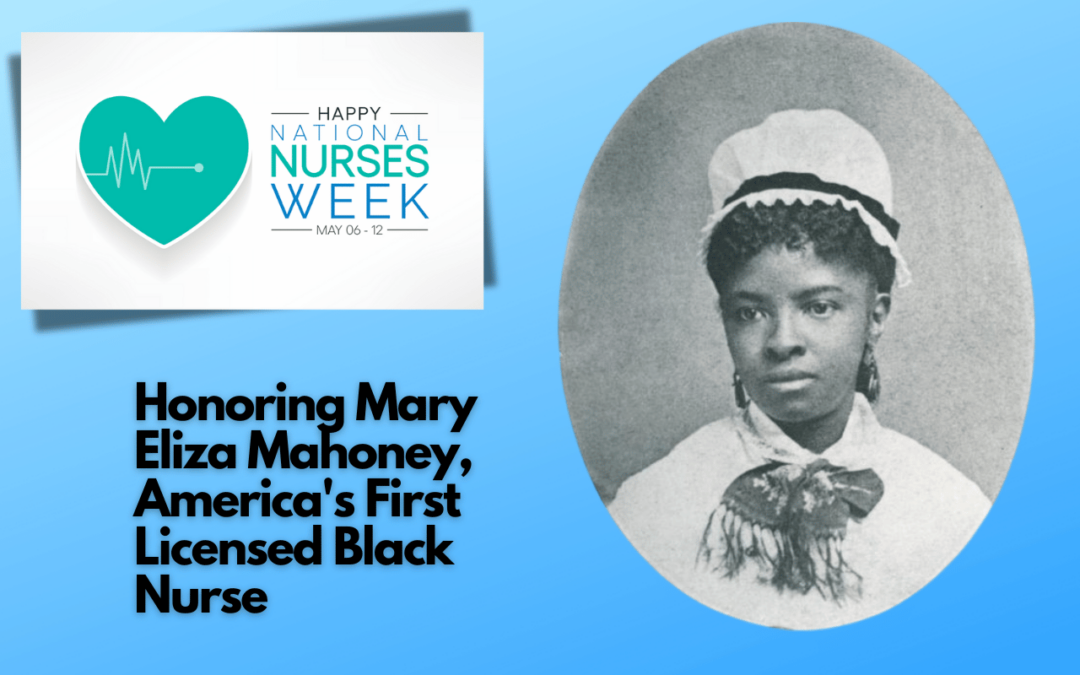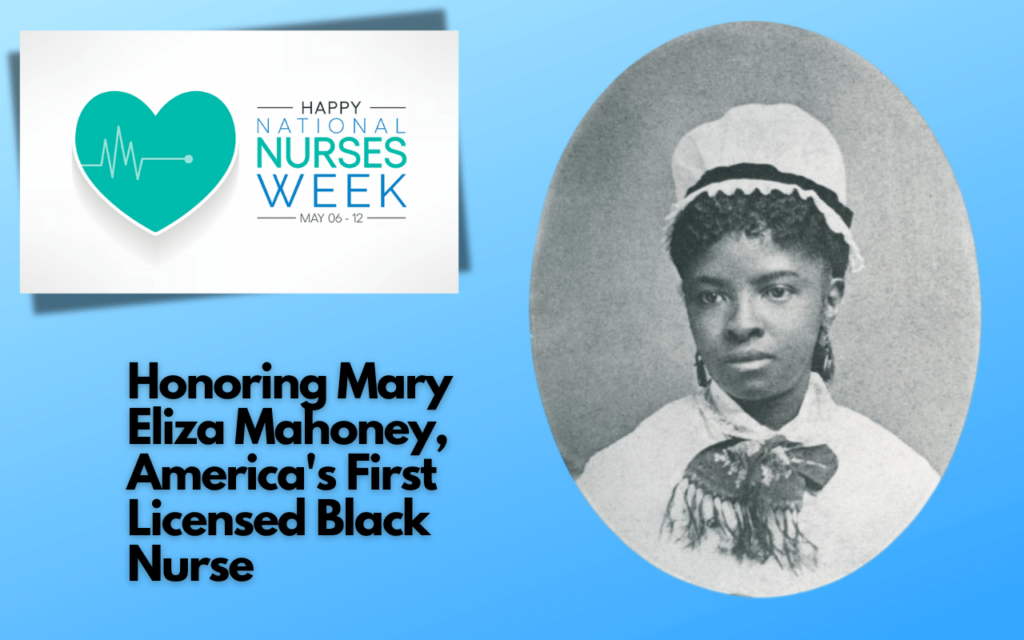
Honoring Mary Eliza Mahoney, America’s First Licensed Black Nurse
This National Nurses Week, learn more about Mary Eliza Mahoney, America’s first professionally-trained Black nurse whose birthday lies on May 7, the second day of National Nurses Week.
Mahoney’s journey to becoming a nurse in the 1800s was full of setbacks she couldn’t control, yet she persevered to create a decades-long career as a nurse known for compassion and bringing comfort to others.
However, her story doesn’t end there—she later became a well-known leader in the nursing field, co-founding the National Association of Colored Graduate Nurses (NACGN) in 1908 and supporting the women’s suffrage movement before it became popular. She was inducted into the National Women’s Hall of Fame in 1993 for her contributions to breaking racial barriers in nursing.
Today, Mahoney inspires Black nurses and other nurses of color who relate to her struggles in a world where breaking the mold is never easy.
From Nurse Aide to Nursing Graduate
Born in Dorchester, Massachusetts, on May 7, 1845, Mary Eliza Mahoney knew at a young age that she wanted to be a nurse. She started her career at the New England Hospital for Women and Children at the age of 20. The hospital was progressive in its time, including an all-women staff of physicians, and provided healthcare to only women and their children. Mahoney first worked as a nurse aide among licensed nurses, but her wages were too low, so she worked in various roles, including washerwoman, janitor, and cook.
After 15 years of domestic service duties, Mahoney was offered a spot at the hospital’s prestigious graduate school in 1878, assisted by a doctor who believed in her potential.
The graduate school’s program was intensive, consisting of 16-hour days learning how to prep and complete ward duty, overseeing up to six patients. The program was so intensive that out of the 42 accepted students, only four remained, including Mahoney. However, Mahoney’s hard work ethic and experience in nursing paid off. After 16 months in the program, she graduated with her nursing diploma, making her the first professionally trained Black nurse at the time.
Mahoney’s Legacy to Nurses
For the next four decades, Mahoney worked as a private nurse to wealthy white families in the Boston area due to discrimination against Black women in hospitals and other professional settings. Mothers and families who worked with her admired her professionalism and work ethic, and she received requests across the Northeast to work with other wealthy families. Over time, Mahoney grew fond of her work, referring to her clients as family.
Mahoney knew that her work would set an example for minority nurses who could work in fields outside of domestic service. As a result, she raised the bar for more Black women to find careers in nursing and similar professions.
In her later years, Mahoney was a vocal advocate for all nurses, including nurses of color. From 1911 to 1912, she was the director of the Howard Colored Orphan Asylum for Black children in Long Island, New York. As a leader in the NACGN, she was already known as a pioneer in nursing. She gave the welcoming address at the NACGN Convention in 1908 and was made an honorary lifetime member and elected chaplain in 1909.
In 1923, Mahoney was diagnosed with breast cancer and died on January 4, 1926, at the age of 80. To remember her legacy, the NACGN created the Mary Mahoney Award in 1936 for any nurse who made a lasting contribution to social justice within their field. This award is still being given today by the American Nurses Association (ANA) after the NACGN merged with the organization.
Mahoney’s legacy shows the values many minority nurses bring to the field. Her efforts to build organizations that highlight the accomplishments of minority women teach what every nurse of color can offer to patients today.
Learn more about Mary Eliza Mahoney
If you want to learn more about this nursing pioneer, here are some resources for a deeper look at her past and significance to nursing:
- BlackPast is an online encyclopedia providing information on Black history internationally, especially in North America. Read Mary Eliza Mahoney’s biography and learn more about the history of Black nurses in the U.S.
- The American Association of Nurse Practitioners (AANP) wrote an article on the impact of Mahoney’s work on diversity, equity, and inclusion in nursing.
- As part of the ANA’s Journey of Racial Reconciliation series, the organization will host a webinar on Mahoney’s birthday with diverse nursing leaders on how nurses can draw inspiration from her impact on the field.


